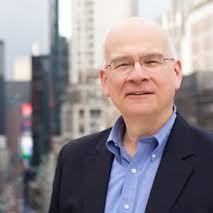|
This posted in adapted from an earlier post on this site, first composed on October 31, 2014. Tonight is Halloween. A couple of my kids will likely be going door-to-door getting candy, and we'll probably be handing out candy to neighborhood kids from our door as well. But October 31 is significant for more reasons than just this. October 31 is also "Reformation Day" - the day in 1517 when a monk named Martin Luther nailed 95 Theses to a church door in Germany and sparked what we now call the Protestant Reformation. (For a recommended introduction to Luther's 95 Theses, check out this book.) Here's what Philip Schaff, a noted church historian, says about the significance of the Reformation: “The Reformation of the sixteenth century is, next to the introduction of Christianity, the greatest event in history. It marks the end of the Middle Ages and the beginning of modern times. Starting from religion, it gave, directly or indirectly, a mighty impulse to every forward movement, and made Protestantism the chief propelling force in the history of modern civilization.” If your'e looking to brush up a bit on Reformation history, check out this post from Ligonier Ministries. This post shares a bit more about the history of the Reformation and key players in it. I encourage you to take a few minutes on this Reformation Day of 2018 and check it out. Here's the post: "The Reformation and the Men Behind It" by Stephen Lawson
Please note the usual disclaimer, that my recommendation of this article is not necessarily an endorsement of everything else on the site where this was posted. As always, read both discerningly and graciously, and with the Bible as your final authority.
0 Comments
In Luke 9:23-25, Jesus makes some bold statements about following Him. In a sense, these verses provide a “101 Class” on discipleship.
“Disciple” is a word you’ll hear in church world a lot - and rightfully so. One of Jesus’ last commands is for the church to go and “make disciples” of all nations (Matthew 28:19-20). Making disciples who make disciples should be on the short list of priorities of every church. The word disciple literally means “learner.” Don’t just think of a learner in some classroom environment, though. Think “apprentice.” Think “someone learning a skill or a lifestyle.” As followers of Jesus, we’re apprentices of Jesus. Or another way to look at it is that a disciple is someone who walks in the footsteps of someone else. When I was in college, I went on a couple of backpacking trips in Colorado - one to fulfill some P.E. credit, and one as part of a team building experience for R.A.s. They were great: Get away from civilization, sleep in tents, see some awesome sights in the Rockies, and do a whole lot of hiking. And both times I went, the guide we were with reinforced the value of paying attention to the person in front of you. To watch where they stepped and to follow that same path. To literally walk in their footsteps as much as you could. As disciples of Jesus, then, we walk in His footsteps. And if the path He went on involved suffering and self-denial (Jesus tells us this in Luke 9:22), we can’t go around that ourselves or skip that part of the trail as His followers. Which is exactly where Jesus takes His instruction to us in Luke 9:23-25: Earlier this summer I took some time and worked through John S. Feinberg's helpful (and thorough - 799 pages!) Light in a Dark Place: The Doctrine of Scripture. Among so many other things I enjoyed about the book, I benefited from how we approached something called "the animation of Scripture" - the belief that Scripture has life-giving, life-changing power that no other book shares. This life-giving, life changing power of the Bible is WHY the Brookside Institute champions biblical literacy and Bible engagement in all the ways it does. Not because Bible engagement is an end-in-itself, but because the Bible is the primary means by which God introduces Himself, a primary way the Spirit works to grow us, and the clearest presentation of the all-satisfying Person and work of Christ. Toward the end of this chapter on the animating power of the Bible, Feinberg draws several practical implications from this belief. Let me quote one of the implications he highlights (from pp. 678-69), in hopes that this will encourage all of us to keep coming back to the Bible, that we might experience the life-changing, life-giving power it offers in all the ways it offers it: God's word has power like no other words ever spoken. Thus, it should be the focus of our study and of our everyday living. Whatever we are called to do, and whatever challenges confront us, our first response should always be to ask what Scripture says about the subject and the deeds in question. Needless to say, that can't happen if we don't read and ponder Scripture. Sadly, even Christians committed to verbal plenary inspiration, the fully inerrancy of Scripture, and the power of God's word find little time in the course of a week to read even a little of it. Believers know the message of Psalm 1 as it compares the happy and blessed man with the man who is unhappy and heading for disaster. The key to both is what they do with Scripture. They happy man grounds his life in God's word. He does not merely take a 'small taste' of it for a half-hour each Sunday morning when his pastor preaches. He meditates on God's word both day and night. As a result, when the storms of life confront him, he survives and even flourishes. The unhappy man, whose life is grounded in pleasure, money-making, self-aggrandizement and / or any of the many philosophies that leave out God and his word, is not ready for life's challenges. At some time in his life there will likely be disaster and ruin, and even if not in this life, he is headed for a horrific eternity. If you liked this post, you might also like...Every year my wife plants a big garden, and we look forward to all the fruit of that garden throughout the summer and into the Fall. She plants lettuce and tomatoes and peppers and whole lot of other things. But we also know that if we’re going to eat the fruit of the garden, we need to actively be dealing with the weeds in the garden. Because weeds will steal light and nutrients from the plants we want to grow. Weeds crowd out space you want for the crops to flourish. Dealing with weeds is a struggle. It’s work! But it’s worth it. In Colossians 3:5-11, the Apostle Paul tells us to make sure we're dealing with the weeds in our garden. Listen to what he says: 5 Put to death, therefore, whatever belongs to your earthly nature: sexual immorality,impurity, lust, evil desires and greed, which is idolatry. 6 Because of these, the wrath of God is coming. 7 You used to walk in these ways, in the life you once lived. 8 But now you must also rid yourselves of all such things as these: anger, rage, malice, slander, and filthy language from your lips. 9 Do not lie to each other, since you have taken off your old self with its practices 10 and have put on the new self, which is being renewed in knowledge in the image of its Creator. 11 Here there is no Gentile or Jew, circumcised or uncircumcised, barbarian, Scythian, slave or free, but Christ is all, and is in all. In his recent book, Preaching: Communicating Faith in an Age of Skepticism, author and pastor Timothy Keller summarizes the storyline of the Bible - climaxing in the sending and sacrifice of Jesus Christ - in a helpful way. And all in about 300 words. (306, to be exact.)
His summary is too good to pass up. I've included it here (from p. 58 of his Preaching book): If you ever check out the footer of this site, where we highlight the top 5 posts of the previous month, you'll have seen "What is Moralistic Therapeutic Deism? And How Does it Stack Up against Biblical Christianity?" has been on a #1 streak for a while (a long while!). And it's understandable why. Moralistic Therapeutic Deism (MTD) is often called the "default religion" of many Americans - whether they consciously articulate it or not. And MTD is definitely NOT a direct overlap of biblical Christianity. To understand the "background noise" that informs the perspective of many Americans - even American Christians - one needs to understand MTD. If you've not checked out the post, you can do so here. So as a nod to the popularity of this post, I'm officially going to "retire the jersey." I'll leave the post just as it is on the site and will include it in the "retired jersey" category of this site's "Library" page. However, moving forward I'll no longer include it in numbers 1-5 of each month's top posts (even though it continues to rank highly among the website "hits" for individual posts), thus allowing room for other posts. Interested in other posts that have gotten a lot of traffic on this site recently? Click here to check 'em out! Interested in seeing all of the "retired jersey" posts up to this point? Here they are:I've mentioned a few times already on this site that theology is important in and for the life of the church, but that sound theology isn't the ONLY the thing a church should be concerned with. Here's one short excerpt from a previous post: So a right theology is not enough - at least not if we define theology primarily in terms of what we KNOW at a cognitive level. We also need to respond rightly - with faith, trust, awe, worship, and obedience" (We NEED Sound Theology. And We Need MORE THAN Sound Theology. We need to keep this mind - in all the ways this quote highlights and more. But I also want to keep my foot on the gas pedal of the important - essential! - contribution that sound theology does make in and for the life of the local church. I love how Keith Johnson brings this out in his recent Theology as Discipleship (p. 77). Read this slowly: We practice theology in order to guide the church as it thinks and speaks about God. This work is our specific commission. God has given us the task of bringing order to the church's language, and this task puts in a position of service rather than superiority. We are responsible for directing the church so that its prayer, worship, and preaching correspond to God's being and character. Our goal is to help the church become confident that its claims about God are true so it can teach believers within the church - and proclaim the gospel to those outside the church - in grace and truth" (Keith L. Johnson, Theology as Discipleship, p. 77). Let's not abandon this "specific commission" Johnson calls us to. We need to champion theology, we need to create space to read and study theology, and we need to teach theology. As we do this, our posture is one of service. Our goal is to faithfully align with God's self-revelation in the Bible (no more, but no less) to equip the church in her prayer, worship, preaching, service, and witness. The local church needs the essential contribution theology makes. If you liked this post, you may be interested in...Based on the number of "hits" each month, here are the top 5 posts here on the Brookside Institute blog for the last six months - January 2017 through June 2017. Take a minute to scroll through the list below and either catch up on things you may have missed or revisit things that were especially helpful.
Every now and then I try to take some time and reflect on why the intentional teaching ministry of the church remains important. Whatever shape it takes, why is equipping and a teaching in the church, for the church, and by the church valuable?
At least one reason is the growth of secularism, pluralism, and "indifferentism" in America. Very simply stated, secularism is a worldview that pushes God to the margins. It's fine to believe in God on your own, the secularist may say, just don't bring any religious ideas or reasoning into the public square. Pluralism flows out of the reality that we are surrounded by people who believe very different things than than us - and it often goes a step further to say the no one religion can be exclusively true. "Indifferentism" (this is my term, I think) tries to explain the religious apathy of the "nones" and "dones" - those who adhere to no single religious expression (the "nones") or those who have "tried out" some religion and - for whatever reason - didn't stick with it. So what does all this have to do with catechesis - an intentional and systematic approach to teaching in the local church? Here's what: This is an updated/revised version of a post I originally wrote on October 14, 2014, "Theology: A Mosaic of Four Pictures." In previous posts, I've written a fair amount on WHAT theology is and WHY it's valuable. I've linked to a number of these at the end.
In this post, though, I want to go a step further and try to bring the "what" and the "why" together in a few mental images that I hope come to people's minds as they consider theology. After all, the pictures we paint in our minds about certain topics play a BIG role in how we approach those topics, whether we see them as positive or negative, etc. With that in mind, here are 5 pictures that I want you to bring to mind when you think about theology. These five images should be taken together and - when done so - show us more about what theology is and why theology really is that important. |
Tim WiebeChristian. Husband. Father. Pastor. Learner. Contributor. Reader. Categories
All
Archives
June 2024
|
© 2014-2024 | 11607 M Circle, Omaha NE, 68137 | www.thebrooksideinstitute.net











 RSS Feed
RSS Feed
